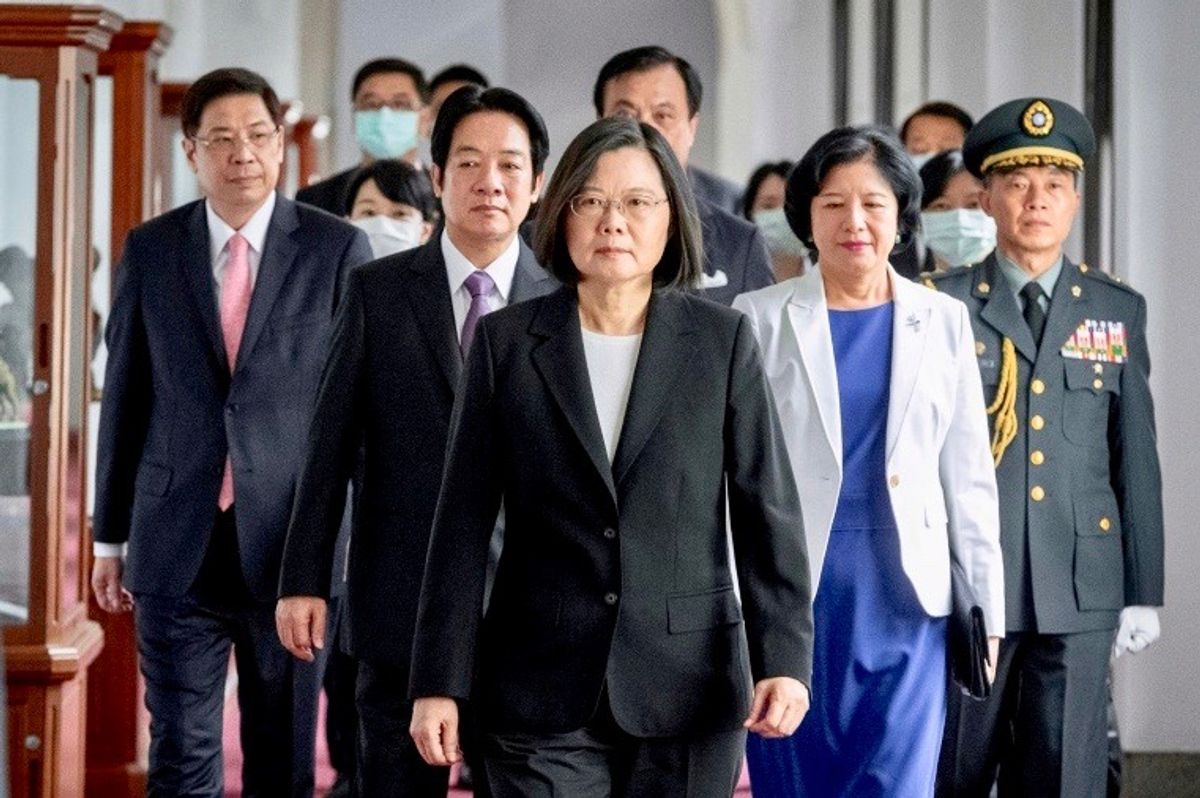
“They are feeling beleaguered,” Rep. Don Beyer (D-VA) told Raw Story, fresh off visiting Taiwan with four other lawmakers last week. “I was impressed with how grateful the Taiwanese leaders seem to be to have us come.”
The former U.S. ambassador, who has served in Congress for eight years now, was a part of a congressional delegation – or ‘CODEL’ – that arrived in Taiwan a mere 12 days after Pelosi’s visit angered Chinese officials. It was the perfect timing, according to Beyer.
“My sense was that they were afraid after the [People's Republic of China’s] overreaction – the live fire demonstrations and all the military exercises – that we would perhaps slink away, and for us to come right back and say, ‘We stand with you,’ or at least behind the six assurances that were in the original 1979 Taiwan Relations Act, I think that they were encouraged,” Beyer said.
Pelosi was the highest-ranking visit from an American official in 25 years, which could have been seen as a one-off, personal PR stunt. But the delegation visit Beyer was a part of – which was spearheaded by Sen. Ed Markey (D-MA) – conveyed that America has Taiwan’s back, which added weight to Pelosi’s message.
“That was certainly what I wanted to do,” Beyer said. “I’m hoping that we played a constructive role in Taiwan, reinforcing the Pelosi message that we respect the USA’s One-China policy, but we clearly want to deter any aggressive action that the People's Republic of China [PRC] might take.”
Beyer currently chairs Congress’ Joint Economic Committee – comprised of members from both the Senate and the House – and serves on the trade subcommittee for the House tax-writing committee (or ‘Ways and Means Committee,’ in congressional speak). Before coming to Congress, besides serving as Virginia’s lieutenant governor, he served as former President Obama’s ambassador to Switzerland and Liechtenstein.
Europe is worlds apart from Asia, as Beyer knows well, which is why he was struck by many of the nuances he was reminded of while abroad this time, including that China and Taiwan have historically kept their distance by agreeing not to cross the Taiwan Strait separating the two nations. The imaginary line cutting through the Strait has barely existed since Pelosi’s visit.
“China is going all the way to like the shoreline of Taiwan right now,” Beyer said. “One of the members of their Congress said occasionally you'd hear a plane a couple of weeks ago; now it's every hour there's a Chinese military plane flying overhead of Taipei. So they're feeling much closer to conflict – a conflict they do not want.”
The big fear now is that China “seems to be less focused on internal economic growth and more on a projection of power,” according to Beyer. Even with China flexing on the global stage, Beyer argues China got a wake-up call after Russia invaded Ukraine some six months ago.
“China had to look at that and say, ‘There's ambiguity about how the US would respond militarily but no ambiguity about the economic consequences,’” Beyer said of a potential Chinese invasion of Taiwan.
“What the invasion of Ukraine has showed is that we have non-kinetic tools – all those economic sanctions – and the social sciences – not being part of the G8 anymore; now it's the G7 – and the Olympics being left out or the cultural things,” Beyer contended. “If Russia thought that this was going to elevate their place in the world, it did exactly the opposite.”
Russia’s invasion also unified and expanded NATO, Beyer was quick to point out, as the former European ambassador he is. Besides Sen. Markey, the delegation also included Democratic Reps. Aumua Amata Coleman Radewagen (AS), John Garamendi (CA), and Alan Lowenthal (CA).
This week an Indiana delegation led by Gov. Eric Holcomb (R) is in Taiwan, in part to talk about semiconductors, which is music to Beyer’s ears.
“They are our eighth largest trading partner. They're our largest source of the semiconductor chips that are so essential for our car businesses and our electronics businesses,” Beyer, who made his wealth selling cars, said.
This summer, Congress passed a measure aimed at boosting America’s microchip industry, which Beyer inquired about with his Taiwanese counterparts.
“They said, ‘No,’ that they planned to take advantage of it and invest in America. They saw that as an additional business opportunity,” Beyer said through a smile. “They call it friend-sourcing, you have the reshoring and the like. As we rethink our supply chains and make them more redundant and more flexible, and, say, less dependent on Communist China, one of the ways is you do supply chains that depend on the countries that you’re closest to.”




